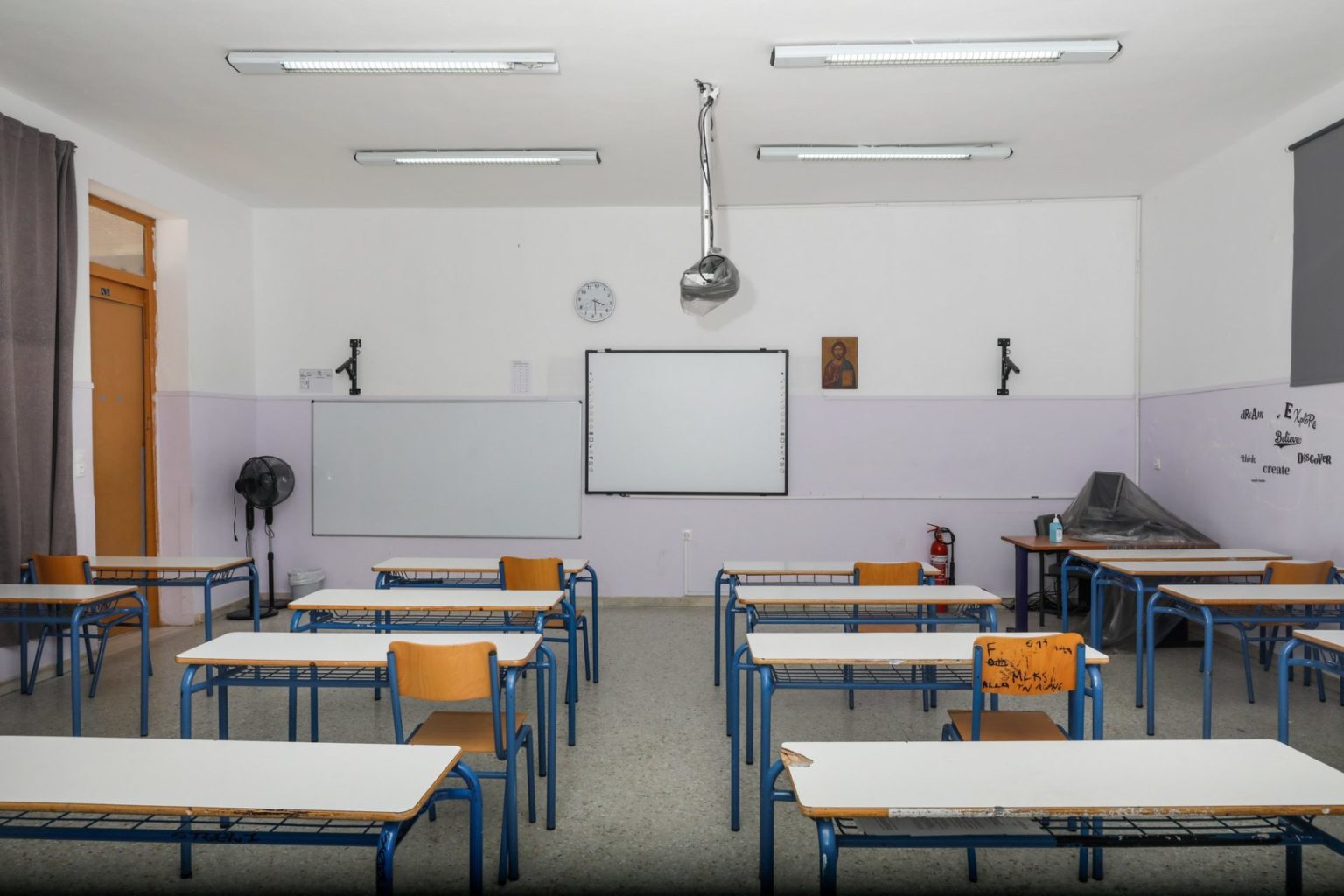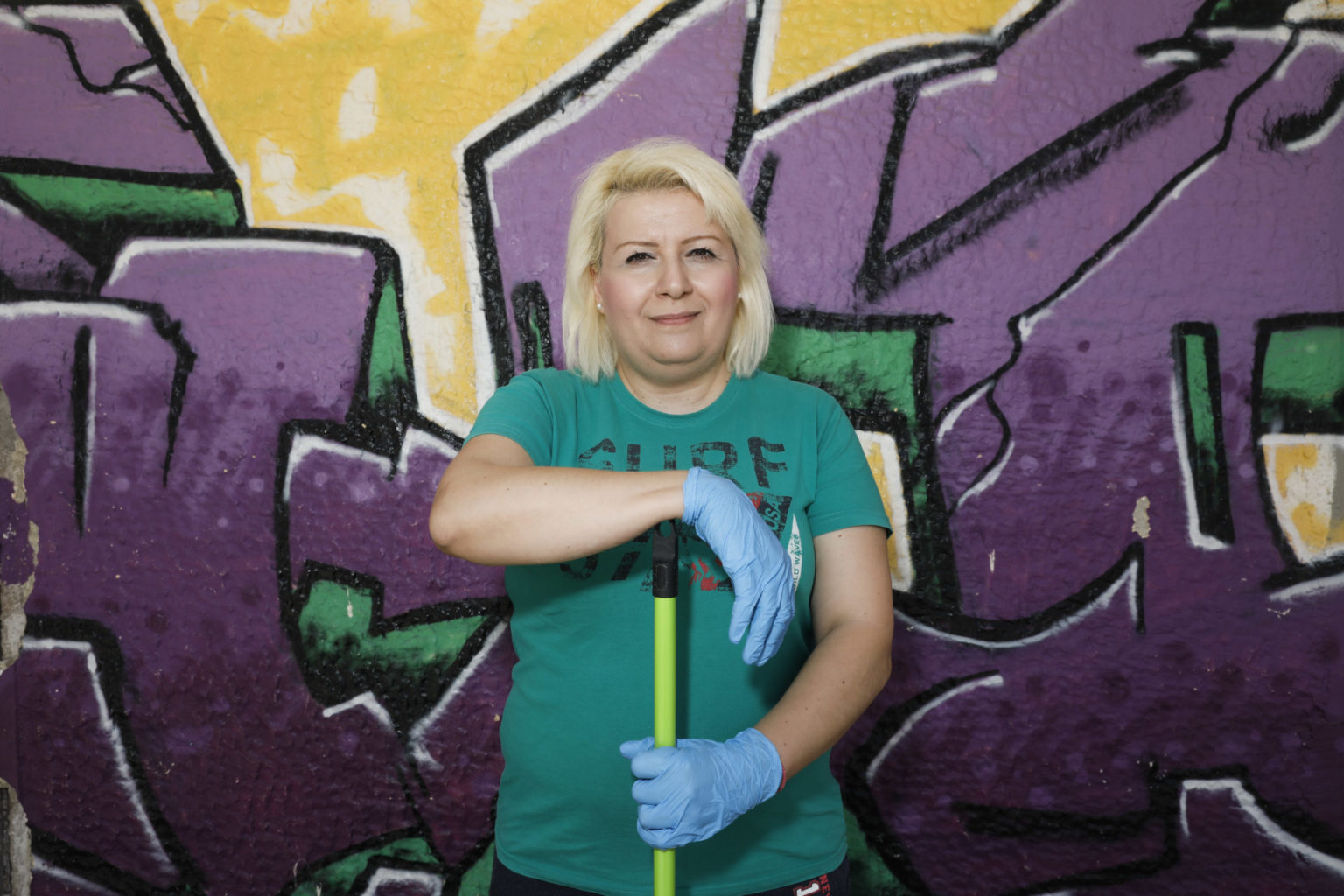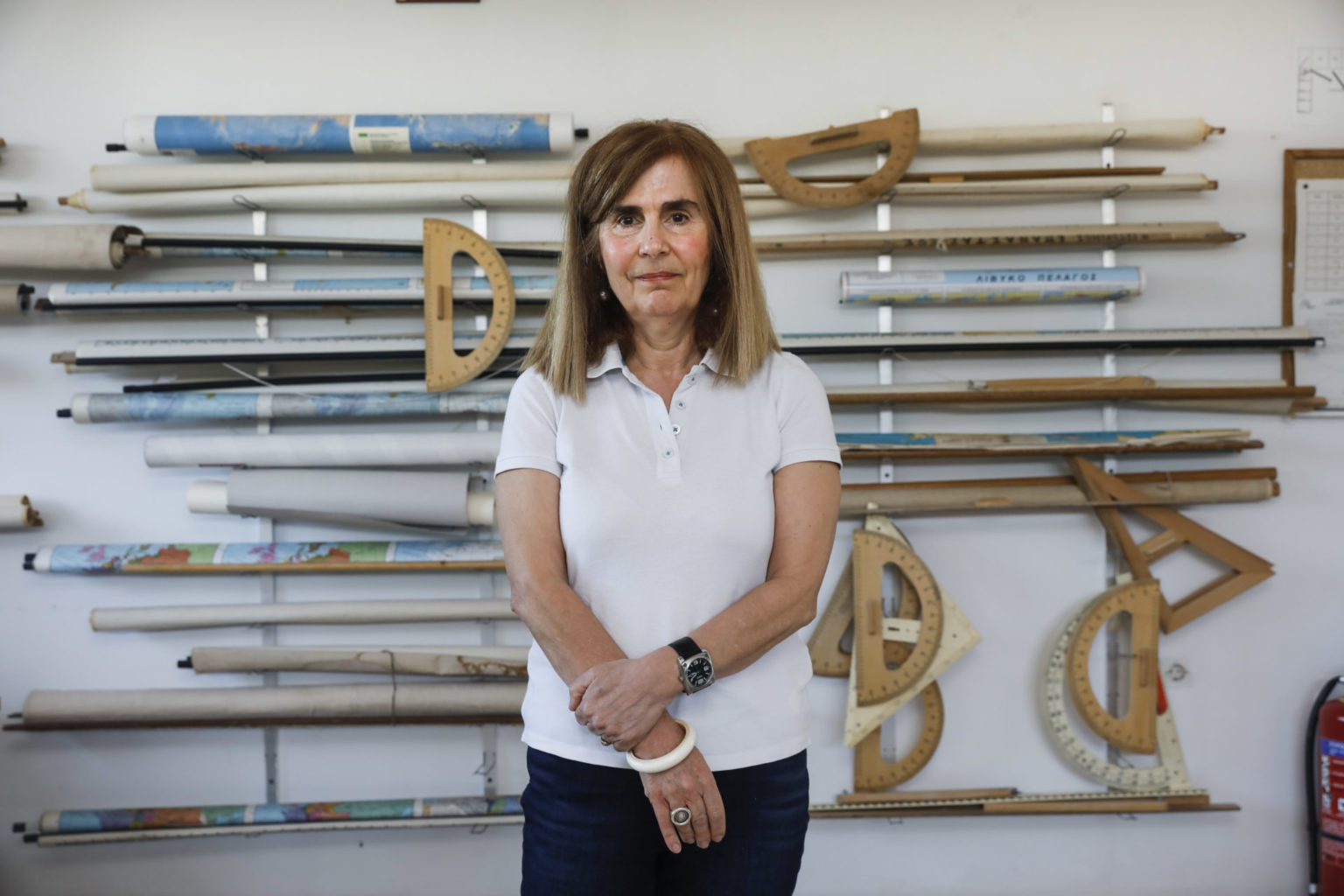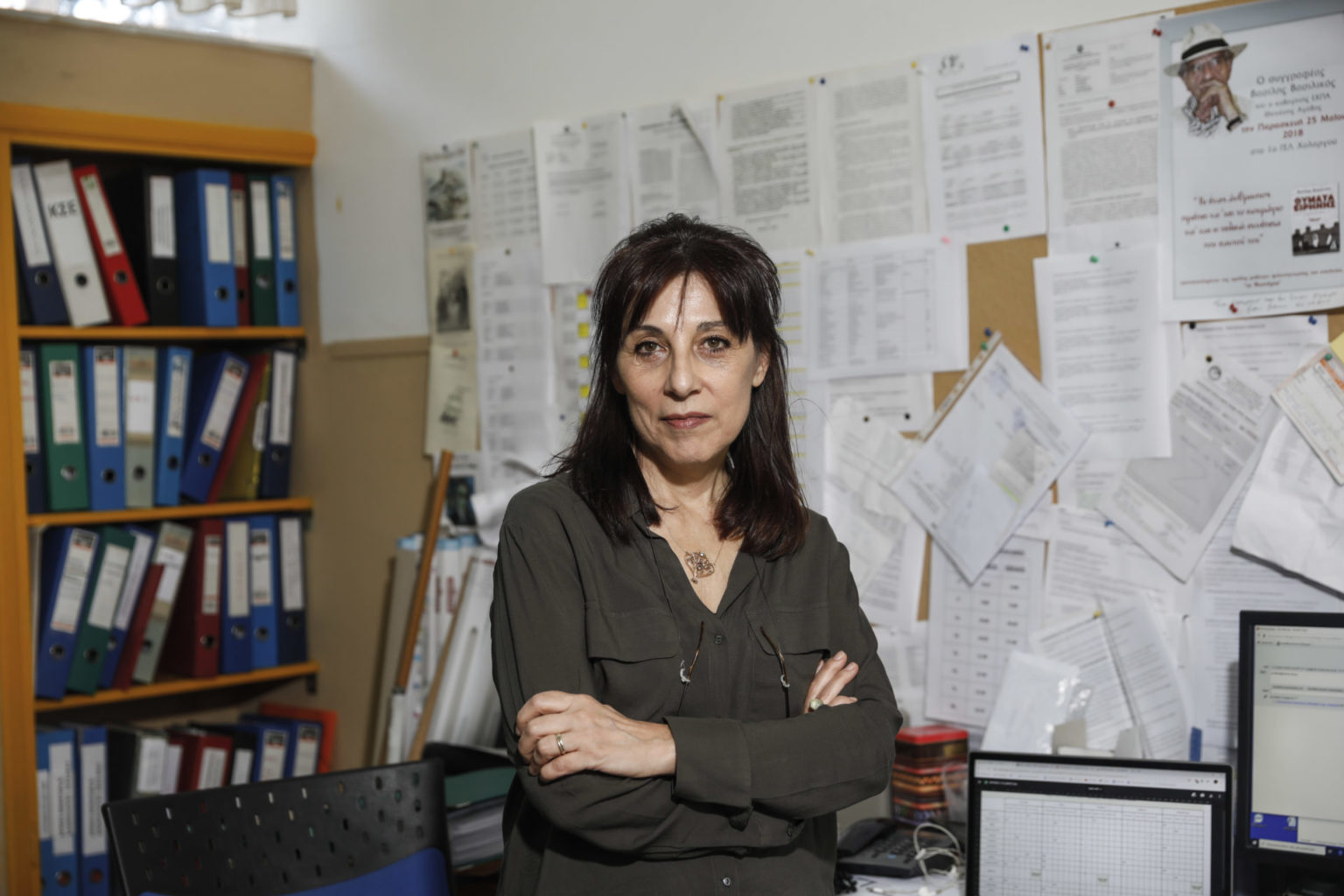On the day the school gate was once again open for twelfth grade pupils, Theodora Panteliou woke up at dawn. Her two children, nine and twelve y.o., were still asleep and so was her husband, who was on special leave allowing him to work from home, since Primary schools remained closed and the family had none else to stay with them. She got ready fast and headed for the 1st Senior High School of Cholargos. She had to be there by seven, the latest. For two years now she has been commuting on the same route, but this was the first time she felt nervous. It seemed to her that her job was more significant now. She is a sound engineer, but when the radio station she was working had to cut down costs she was fired and found a job at the school’s cleaning service.
The instructions she had were clear and strict. Meticulous cleanliness would be key to the safety of pupils and teachers. However, there were no provisions for a visit by a special disinfection unit at their school. Together with another colleague and any detergent they found available, they had started five days earlier to clean the classrooms – that had been closed for two months due to coronavirus – one by one. It was also a drill to check how much time is needed to clean each space, under the new protocols. Upon the return of pupils, they would have to clean the entire school at least twice a day, while any high traffic items or surfaces, such as doorknobs, stairs, water taps etc., required more frequent cleaning.

Their mission was even harder because restoration works had just started in this specific school. Indeed, the section of the school where works continued had been isolated, but still, dust was everywhere.
Teacher Mary Chotzoglou also arrived long before the usual attendance time. She had woken up stressed too. She agreed with her husband to isolate herself completely for the period she would be teaching; a different type of quarantine had just started. That day was her birthday; she turned 63. On her way to school, she thought about stopping by a pastry shop to buy treats for her pupils and colleagues, like she has done all 38 years of her teaching career. But she decided there was no point in that. Only a handful would be at school that morning and perhaps it wasn’t very safe anyway. She didn’t know if it was actually even allowed.

When she entered the school her heart jumped. She had taken a hard decision: To retire. She had been thinking about it since September. However, just after Christmas, she decided that leaving her pupils behind would make her lose her sparkle, so she decided to stay at her job for yet another year. But coronavirus changed her plans: In addition to the stress she felt about the virus, distance tutoring had started taking its toll. At first, she had technical difficulties with her usernames and passwords which took quite some time to resolve and found the use of the e-platform hard to handle. In the end, she contacted her pupils over the phone and sent out material via her personal e-mail. This situation disheartened her because she always wanted to keep pace with the latest and be innovative. She used to bring newspaper clippings to the classroom and blend the news into the curriculum. Her pupils used to like her method and teaching style. Now, for the first time, she felt old, she felt that perhaps it was time she retired.
The first thing she did, as soon as she arrived at school, was to head for the teachers’ toilet to wash her hands thoroughly. She made herself a second cup of coffee at the kitchenette and reapplied some disinfectant on her hands. The small group in the teachers’ room was slowly growing and everyone were somewhat uneasy. “I can’t see the difference. Why is hanging out at the square a healthcare threat and this isn’t?”, someone said. “You’re being dramatic; it will only be a bunch of pupils, they won’t come in contact” someone else replied.

In this school, the mean age of teachers is high and principal Ifigenia Schistou had to deal with the fears of many among them. Unlike pupils, who by a simple solemn declaration that they “belong to a high risk category” or “have in their family household a high risk individual” could skip attendance, teachers could not do the same (unless they were proven as high risk group individuals themselves). She was trying to sooth them – all guidelines will be diligently followed; besides attendance in the twelfth grade will be low, as it is customary for only a few pupils to come to school in the last month before the national admission examinations.
That morning, Ms Schistou, aided by Theodora from the cleaning service, make a final inspection of the classrooms they had arranged together. She opened the windows, to allow airing of the classrooms and checked the distances between desks. That morning the bell did not ring, but the pupils that had gotten at school went in the classrooms and at classes started.
Mary Chotzoglou’s class normally has 24 pupils. On that day, only half would come to ensure compliance with the safety measures while the other half would come on another day of the week. In that first class five finally showed up. “I’m giving you a distant hug, I’ve missed you” she said tenderly as she walked in the classroom. A pupil went near her desk to apply some disinfectant on his hands and she stepped back. “We shouldn’t relax! I’m saying this for your own good; we don’t want you to fall ill before the exams. I’m saying this for myself too, as I am of a certain age” she said, making her class giggle. Yet, they too had missed her. For about 10 minutes they discussed how they experienced the quarantine. Despina, for instance told them that she was stressed. She couldn’t organise her homework and was “all over the place”. Ifigenia, on the other hand, said she had a good time: “I got plenty of sleep, I managed to do my studying and got to .know my parents” she said and everybody shared a good laugh. “No, it’s true! We have never spent so much time before!” she insisted.

Without even realising it, the two girls had moved their chairs closer than they were supposed to. Ms Schistou, who was inspecting all classrooms, saw that and asked them to move. During the first recess, only two classes appeared in the schoolyard. It was clear as day that pupils soon left their guard down and in a couple of minutes two kids were already hugging. A teacher yelled and they let each other go in giggles.
“Let’s face it, they are kids, they can’t keep the distances” agreed teachers and the principal a bit later. When Ms Schistou went back to her office, she found some parents waiting to talk to her and many more trying to reach her on the phone. Most of them were concerned about how their kids’ health was protected, while others wondered if and to what extent the curriculum of the first two grades of senior high school was covered. They felt that, in the public schools of the country, the quality of distance learning was to a large extent dependant on the good intentions of each teacher. “In some cases, of each pupil too” added Ms Schistou, who explained to parents that many kids simply did not participate. She did agree however, that there were indeed some gaps which they would now try to cover.
Later that afternoon she talked with other principals too – they compared attendance numbers and the difficulties they faced (these were both similar). It was late afternoon when she locked the school gate. The first day was over. Exhausting, yes, but everything had worked out fine – or at least that’s what she hoped. It was a read-through for the following weeks (when more pupils would attend) and even possible for the following year. As she said to her teachers that morning, these conditions are unprecedented but they will have to get used to them: “We are not done with the coronavirus. There’s a great change we’ll go through the same situation in autumn” she said. It is also what Mary Chotzoglou felt and yet another reason for deciding to retire. This is why she felt so torn that day: On one hand, she was happy to meet some of her colleagues and pupils but then again, this is not what she had dreamt her last months at school to be. “It seems unthinkable that I won’t be able to hug you to say goodbye” she said as she was leaving that afternoon.
